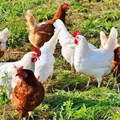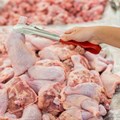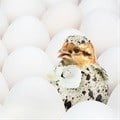The South African Poultry Association has responded to the Association of Meat Importers and Exporters (AMIE) study on the South African chicken industry, which has claimed that a decision to increase tariffs will have dire consequences for consumers.
AMIE presented the broiler study to explore how the introduction of further protection will impact jobs and the economy.
According to AMIE, "tariff increases of up to 82% on chicken imported from non-EU and SADC countries, could see shortages occurring in local markets which domestic producers may not be able to meet."
The AMIE report states that the research it commissioned from FTI Consulting, shows that significant tariff increases in an industry which is already highly protected would result in chicken volumes available locally potentially dropping by more than 44,650 tonnes (based on conservative assumptions) if current proposals are accepted.
However, SAPA has challenged AMIE’s study, saying that the decision on the tariff is pending: "Considering that the process has run over almost a year during which time they had all the time to make submissions along with all other stakeholders, including SANCU, FAWU, Ebiesa and others; not only SAPA.
"There is nothing new in this so-called study; the minister and ITAC have all that information already and would have been using the information supplied by every relevant stakeholder, including AMIE, to reach a decision on the tariff," says Izaak Breitenbach, SAPA general manager.
According to SAPA, "it must be remembered that tariffs are a mechanism put into place by the WTO against unfair trade, and it is then up to the Department of Trade and Industry to determine the level of unfair trade. The fact that the SA poultry industry is experiencing unfair trade and suffering a negative impact is therefore not in dispute any longer – that has been established and all that remains is for the correct tariff to be decided on by ITAC, and ratified by Minister Patel."
"One gets the feeling that AMIE is trying to influence the minister’s decision, instead of trusting the process," says Breitenbach.





























